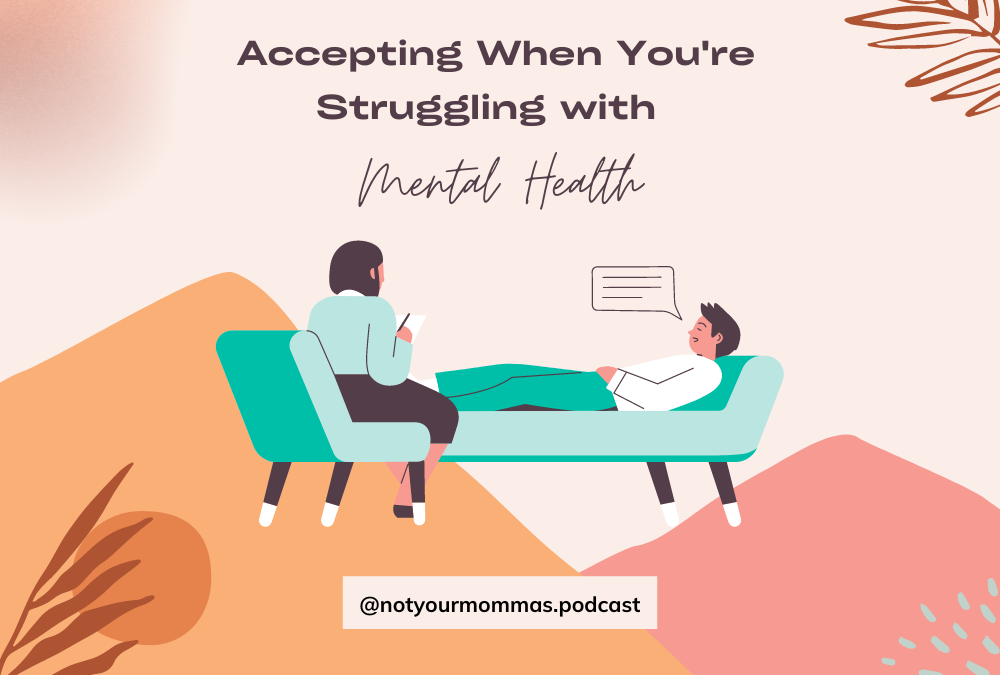Accepting When You’re Struggling with Your Mental Health
Life can sometimes feel like a rollercoaster. We have our ups and downs, moments of sheer joy and times of deep sadness. But what happens when those low moments start to stretch out, becoming more frequent and harder to shake off? Admitting you’re struggling with your mental health can be one of the hardest yet most important steps you can take.
My Story
I remember a time when I couldn’t understand why I felt so overwhelmed. From the outside, everything seemed fine. I had a good job, supportive friends, and a loving family. But inside, I was battling a storm. Waking up every morning felt like a chore. I felt isolated, even in a room full of people. There was an invisible weight that I couldn’t explain to anyone, not even to myself.
At first, I tried to push through it. I told myself to be stronger, to ignore the feelings, to keep smiling. But the more I tried to suppress my emotions, the heavier they became. It was like trying to hold a beach ball underwater—the pressure kept building until it finally burst to the surface.
The Turning Point
The turning point came when I finally allowed myself to admit that I was struggling. It wasn’t easy. There’s a lot of stigma around mental health, and I feared being judged. But acknowledging that I needed help was the first step toward healing. It was okay to not be okay.
I started talking to friends and family about what I was going through. I reached out to a therapist who provided a safe space for me to express my feelings without fear of judgment. These conversations were life-changing. They helped me understand that mental health struggles are not a sign of weakness but a part of being human.
Why Acceptance is Crucial
Accepting that you’re struggling with your mental health is crucial because it opens the door to getting the help you need. Here’s why it matters:
- Reduces Isolation: Acknowledging your struggles allows you to seek support from others, making you feel less alone.
2. Promotes Healing:
Acceptance is the first step toward addressing the root causes of your feelings and finding ways to cope.
3. Empowers You:
It puts you in control of your mental health journey. You can start making informed decisions about how to manage your well-being.
Steps to Take When You’re Struggling
Acknowledge Your Feelings
It’s okay to admit that you’re not feeling your best. Recognize your emotions without judgment.
Reach Out for Support :
Talk to friends, family, or a mental health professional. Sharing your burden can lighten the load.
Take Small Steps:
Focus on small, manageable actions that can improve your mental health, like going for a walk, journaling, or practicing mindfulness.
Be Patient with Yourself
Healing is a process. Be kind to yourself and give yourself the time you need.
You’re Not Alone
If you’re struggling with your mental health, remember that you’re not alone. Many people have walked this path and have come out stronger on the other side. Your feelings are valid, and seeking help is a sign of strength, not weakness.
For more stories and tips on managing mental health, Listen to our Podcast “Healthy Eating Tips | Cracking the Wellness Code A Conversation with Nikki Burnett | Exercise, Nutrition & Health 🌱 by Not Your Momma’s Podcast (spotify.com)“We delve deeper into personal experiences, expert advice, and practical strategies to help you navigate your journey. Listen now and join a community that understands and supports you.
Final Thoughts
Accepting when you’re struggling with your mental health is a brave and necessary step toward healing. It’s okay to admit that you’re not okay. By doing so, you’re taking control of your mental well-being and paving the way for a healthier, happier life. Remember, help is available, and you don’t have to face this journey alone. Take the first step today.

